We explain why acetic acid and co. can be good for the body
During the fermentation of kombucha, a variety of health-promoting substances are created, including B vitamins, vital yeasts, organic acids, probiotic lactic acid bacteria, and various enzymes.
The work of kombucha culture is truly remarkable, and the variety of metabolic products it produces is hard to beat. The positive effects of kombucha are not limited to its individual components. It is the harmonious interplay of all the ingredients and their interactions that make kombucha such a special drink. Among these components are several acids that have been scientifically proven to have health-promoting effects on the human body . Today, I would like to introduce you to a few of these important acids found in kombucha.

Amino acids
After water, proteins are the most abundant substances in the human body. Proteins consist of amino acids. They are essential for the development of muscles, skin, and hair . They are also a building block of the immune system and necessary for the production of hormones and enzymes. They perform various transport functions in the blood and even carry genetic information.
succinic acid
Succinic acid is naturally produced in the human body as a breakdown product of glucose metabolism and the urea cycle . It maintains the body's acid balance.
acetic acid
The acetic acid in kombucha not only stimulates the human metabolism, but also has a positive effect on many unhealthy bacteria and fungi, which don't like acid at all. It can also aid in detoxification.
Folic acid
Folic acid is a vital B vitamin and plays an extremely important role in the body. It aids in the development and regeneration of various cells and is required by all body cells for DNA production and repair . The body cannot produce folic acid itself and relies on regular intake.

Glucuronic acid
The glucuronic acid found in kombucha is formed during the oxidation of sugar. Glucuronic acid is produced naturally in our liver and is responsible for eliminating toxins. It has a very important detoxification function . Gluconic acid is also formed alongside glucuronic acid. Both are very similar in structure. Gluconic acid primarily promotes the glandular system and metabolism .
All functions of glucuronic acid at a glance:
- supports the liver in binding the body's own metabolic toxins and removing them from the body
- also binds foreign environmental toxins and flushes them out via urine and intestines
- is a building block of various polysaccharides, such as hyaluronic acid
Thanks to glucuronic acid, kombucha can help you detoxify and is especially helpful for a minor hangover.

Right-handed lactic acid
Just like succinic acid and glucuronic acid, right-handed lactic acid is a natural component of the human body, but only in the active right-handed L-form. Left-handed D-lactic acid, on the other hand, is a burden on the human body. A deficiency of right-handed lactic acid bacteria can lead, among other things, to a weakening of cellular respiration.
The tissue of cancer patients is often completely lacking in right-handed lactic acid bacteria. This lactic acid also has a positive effect on the intestinal flora . The bacteria colonize the lower and middle sections of the small intestine and slightly acidify the intestinal environment. This makes it more difficult for pathogens to spread.
Usnic acid
The usnic acid present in kombucha has an antimicrobial effect and can accelerate the healing of skin infections .

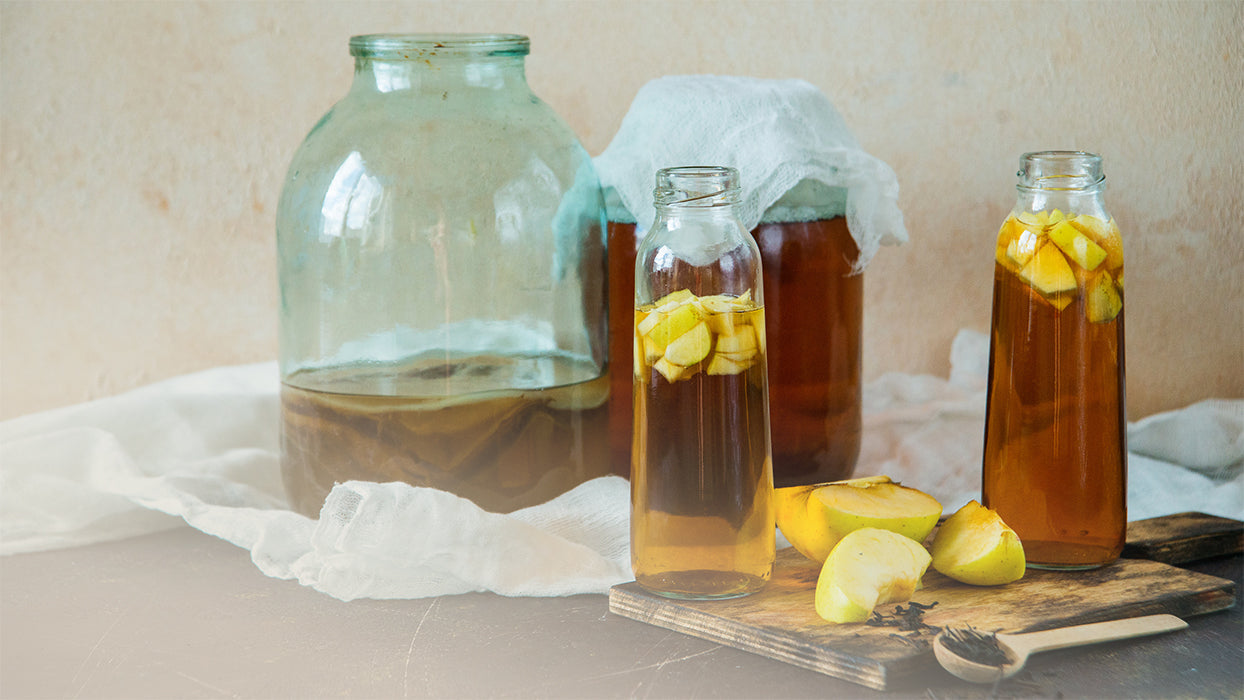

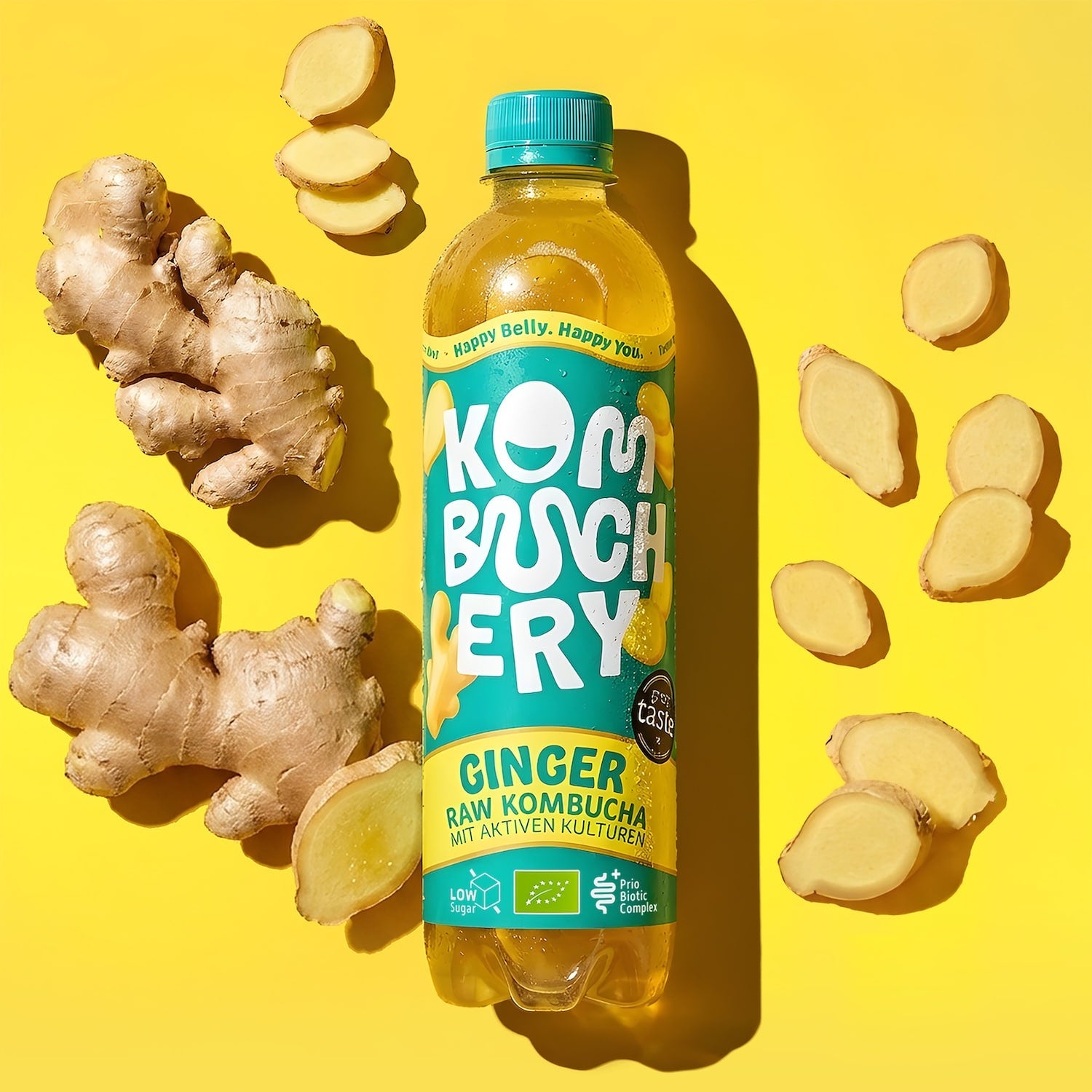

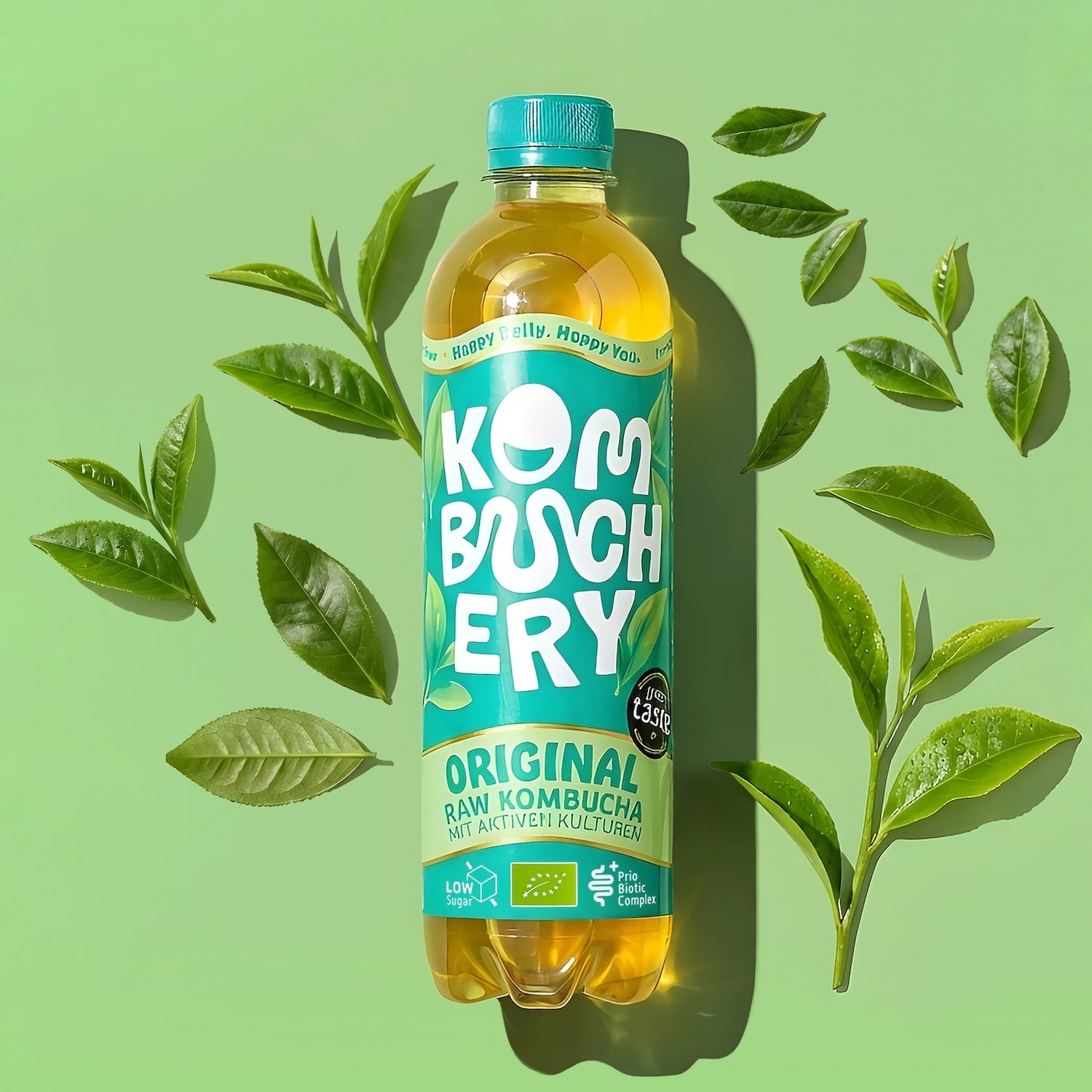




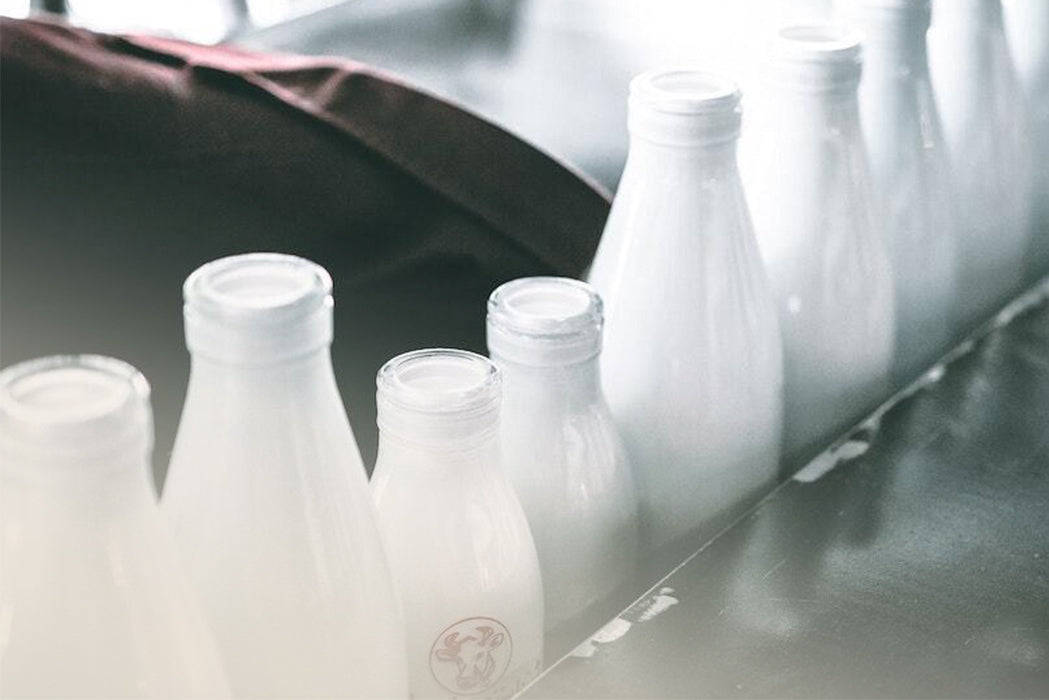


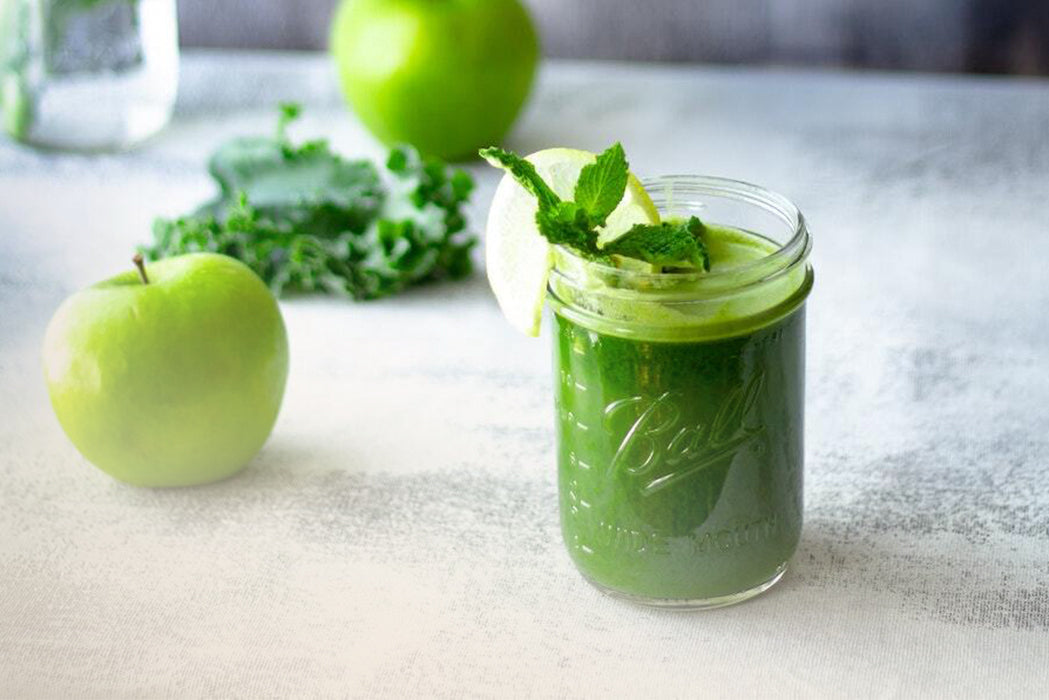

Split: